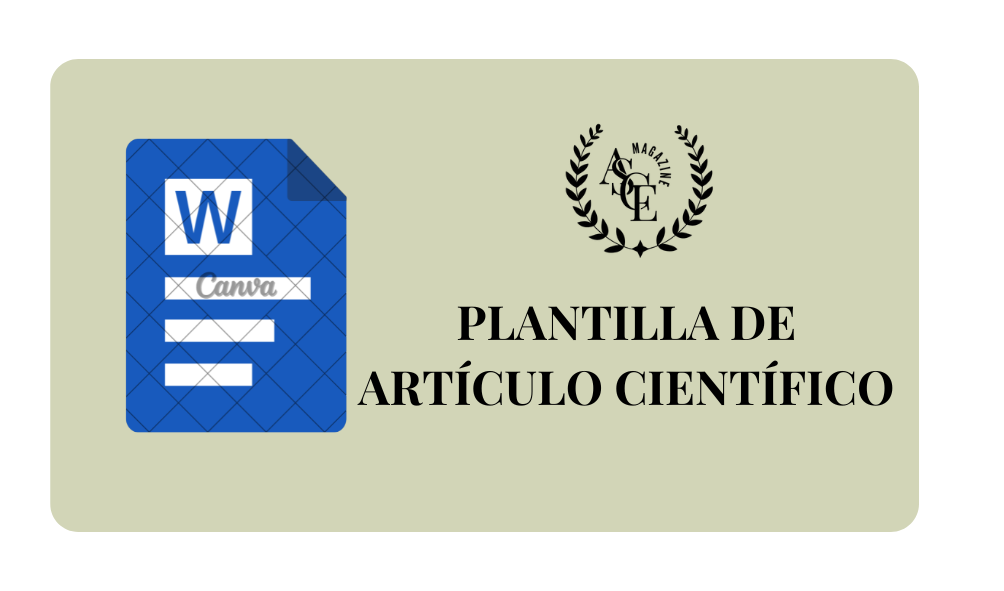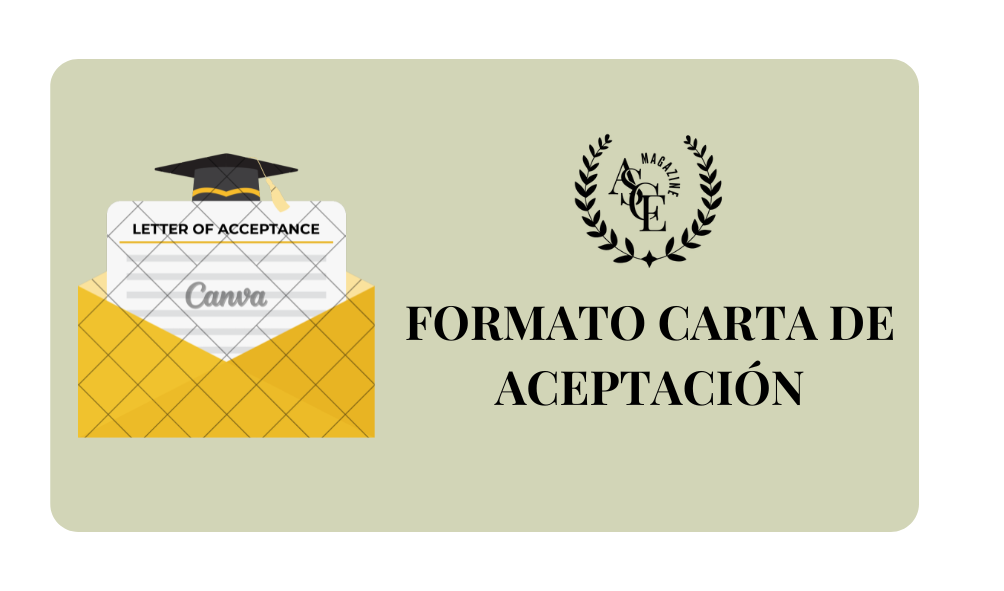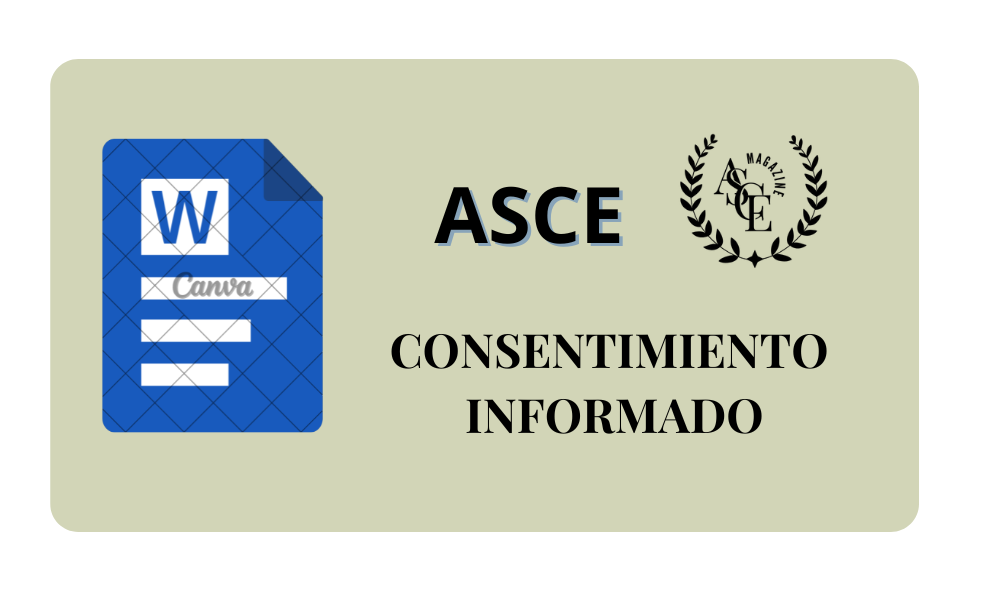Use of digital tools to study water: an interdisciplinary approach in natural sciences
DOI:
https://doi.org/10.70577/asce.v4i4.517Keywords:
Digital Tools, Interdisciplinary Learning, Water Education, Science Education, Geospatial Technologies, Hydrological Modeling, STEM Integration.Abstract
The present research explores the use of digital technologies for studying water from an interdisciplinary perspective within Natural Sciences, particularly focusing on their potential to address complex problems and their role in systemic educational transformation. The study emerges from the need to deepen the understanding of hydrological systems by integrating scientific, technological, and environmental knowledge through digital strategies that foster critical thinking and informed decision-making. A mixed-methods approach with an explanatory sequential design was employed, consisting of an analysis of teaching practices, the implementation of interdisciplinary ICT-mediated activities, and the assessment of student learning through scientific and technological competency rubrics. The digital technologies used included hydrological simulation models, design-based modeling applications, gamified environments, and collaborative data-analysis platforms. Improvements in student performance were associated with enhanced understanding of the water cycle, water quality, and sustainable resource management. Sustained gains indicated increased motivation, classroom participation, and greater ease in addressing complex environmental issues. Furthermore, interdisciplinary collaboration fostered active and critical thinking, enabling students to conduct multicausal analyses and deconstruct the complex problem of environmental degradation into sustainable and actionable solutions. The study confirms that digital tools enable and promote complex mental visualization and experimentation. They are not merely digital resources; they function as cognitive tools that encourage teachers to innovate and adjust their curricula to foster complex thinking and problem-solving. The findings provide evidence of the critical importance of emerging technologies for water education and highlight the need to inform policymakers in order to promote a scientific, contextualized, and interdisciplinary approach to environmental learning.
Downloads
References
Aguilar Tinoco, R. J., Carvallo Lobato, M. F., Román Camacho, D. E., Liberio Anzules, A. M., Hernández Centeno, J. A., Duran Fajardo, T. B., & Bernal Parraga, A. P. (2024). El Impacto del Diseño Universal para el Aprendizaje (DUA) en la Enseñanza de Ciencias Naturales: Un Enfoque Inclusivo y Personalizado. Ciencia Latina, 8(5), 2162–2178. https://doi.org/10.37811/cl_rcm.v8i5.13682
Aljaiuossi, A., Al-Qahtani, M., & Al-Harthy, F. (2023). Effects of VR-based environmental simulations on students’ conceptual understanding. Journal of Science Education and Technology, 32, 411–427. https://doi.org/10.1007/s10956-022-10042-y
Alvarez Piza, R. A., Del Hierro Pérez, M. C., Vera Molina, R. M., Moran Piguave, G. D., Pareja Mancilla, S. S., Narváez Hoyos, J. J., & Bernal Parraga, A. P. (2024). Desarrollo del razonamiento en educación básica mediante aprendizaje basado en problemas y lecciones aprendidas de proyectos matemáticos previos. Ciencia Latina Revista Científica Multidisciplinar, 8(5), 13998-14014. https://doi.org/10.37811/cl_rcm.v8i5.14912
Alvarez Piza, R. A., Del Hierro Pérez, M. C., Vera Molina, R. M., Moran Piguave, G. D., Pareja Mancilla, S. S., Narváez Hoyos, J. J., & Bernal Parraga , A. P. (2024). Desarrollo del Pensamiento Lógico a través de la Resolución de Problemas en Matemáticas Estrategias Eficaces para la Educación Básica. Ciencia Latina Revista Científica Multidisciplinar, 8(5), 2212-2229. https://doi.org/10.37811/cl_rcm.v8i5.13686
Araya, R., & Dartnell, P. (2020). ICT in Latin American education: Gaps and opportunities. Ensaio: Avaliação e Políticas Públicas em Educação, 26(100), 415–438. https://doi.org/10.1590/1980-54702020v26e0215
Arequipa Molina, A. D., Cruz Roca, A. B., Nuñez Calle, J. J., Moreira Velez, K. L., Guevara Guevara, N. P., Bassantes Guerra, J. P., & Bernal Parraga, A. P. (2024). Formación Docente en Estrategias Innovadoras y su Impacto en el Aprendizaje de las Matemáticas. Ciencia Latina Revista Científica Multidisciplinar, 8(4), 9597-9619. https://doi.org/10.37811/cl_rcm.v8i4.13111
Bearman, N. (2016). The future role of GIS education in creating critical spatial thinking. Journal of Geography in Higher Education, 45*(2), 180-? (Nota: número de páginas completas se debe confirmar). https://doi.org/10.1080/03098265.2016.1144729
Bernal Parraga , A. P., Naguas Nagua, J. A., Villarreal Bonifaz , M. M., Santillán Sevillano , N. D. C., Reyes Ordoñez, J. P., Carrillo Baldeón, V. P., & Macas Pacheco, C. (2025). Gamificación como estrategia innovadora para promover el aprendizaje significativo en Estudios Sociales. Ciencia Latina Revista Científica Multidisciplinar, 9(1), 1044-1061. https://doi.org/10.37811/cl_rcm.v9i1.15860
Bernal Parraga, A. P., Cadena Morales, A. G., Cadena Morales, J. A., Mejía Quiñonez, J. L., Alcívar Vélez, V. E., Pinargote Carreño, V. G., & Tello Mayorga, L. E. (2024). Impacto de las Plataformas de Gamificación en la Enseñanza: Un Análisis de su Efectividad Educativa. Ciencia Latina Revista Científica Multidisciplinar, 8(5), 2851-2867. https://doi.org/10.37811/cl_rcm.v8i5.13742
Bernal Parraga, A. P., Ibarvo Arias, J. A., Amaguaña Cotacachi, E. J., Gloria Aracely, C. T., Constante Olmedo, D. F., Valarezo Espinosa, G. H., & Poveda Gómez, J. A. (2025). Innovación Metodológica en la Enseñanza de las Ciencias Naturales: Integración de Realidad Aumentada y Aprendizaje Basado en Proyectos para Potenciar la Comprensión Científica en Educación Básica. Revista Científica De Salud Y Desarrollo Humano, 6(2), 488–513. https://doi.org/10.61368/r.s.d.h.v6i2.613
Bernal Párraga, A. P., Jaramillo Rodriguez, V. A., Correa Pardo, Y. C., Andrade Aviles, W. A., Cruz Gaibor, W. A., & Constante Olmedo, D. F. (2024). Metodologías Activas Innovadoras de Aprendizaje aplicadas al Medioambiente en Edades Tempranas desde el Área de Ciencias Naturales. Ciencia Latina, 8(4), 2892–2916. https://doi.org/10.37811/cl_rcm.v8i4.12536
Bernal Párraga, A. P., Medina Marino, P. A., Cholango Tenemaza, E. G., Zamora Franco, A. F., Zamora Franco, C. G., & López Sánchez, I. Y. (2024). Educación especial en metodologías de discapacidad múltiple intelectual y física: Un enfoque inclusivo. Ciencia Latina Revista Científica Multidisciplinar, 8(3), 3229–3248. https://doi.org/10.37811/cl_rcm.v8i3.11544
Bernal Parraga, A. P., Orozco Maldonado, M. E., Salinas Rivera, I. K., Gaibor Davila, A. E., Gaibor Davila, V. M., Gaibor Davila, R. S., & Garcia Monar, K. R. (2024). Análisis de Recursos Digitales para el Aprendizaje en Línea para el Área de Ciencias Naturales. Ciencia Latina, 8(4), 9921–9938. https://doi.org/10.37811/cl_rcm.v8i4.13141
Bernal Parraga, A. P., Sandra Veronica, L. P., Orozco Maldonado, M. E., Arreaga Soriano, L. L., Vera Figueroa, L. V., Chimbay Vallejo, N. M., & Zambrano Lamilla, L. M. (2024). Análisis comparativo de la metodología STEM y otras metodologías activas en la educación general básica. Ciencia Latina, 8(4), 10094–10113. https://doi.org/10.37811/cl_rcm.v8i4.13153
Bernal ParragaA., Alvarez SantosA., & Mite CisnerosM. (2025). Formación docente: enfoques pedagógicos innovadores para el fortalecimiento de competencias profesionales en el siglo XXI. Varona, (84). Recuperado a partir de http://revistas.ucpejv.edu.cu/index.php/rVar/article/view/2981
Bernhäuserová, V., Havelková, L., Hátlová, K., & Hanus, M. (2022). The limits of GIS implementation in education: A systematic review. ISPRS International Journal of Geo-Information, 11(12), 592. https://doi.org/10.3390/ijgi11120592
Boon, K. (2024). Water education, sustainability and critical thinking in secondary schools. Education Sciences, 14(6), 564. https://doi.org/10.3390/educsci14060564
Califf, C. B., & Brooks, S. (2020). An empirical study of techno-stressors, literacy facilitation, burnout, and turnover intention as experienced by K–12 teachers. Computers & Education, 157, 103971. https://doi.org/10.1016/j.compedu.2020.103971
Çalıkuşu, A., & Sabancı, A. (2025). Students’ perspectives on water literacy: The case of 8th grade students. International Journal of Psychology and Educational Research, 6(1), 1–15. https://www.ijopr.com/download/students-perspectives-on-water-literacy-the-case-of-8th-grade-students-17305.pdf
Castillo Baño , C. P., Cruz Gaibor, W. A., Bravo Jacome, R. E., Sandoval Lloacana, C. F., Guishca Ayala, L. M., Campaña Nieto, R. A., Yepez Mogro, T. C., & Bernal Párraga, A. P. (2024). Uso de Tecnologías Digitales en la Educación para la Ciudadanía. Ciencia Latina Revista Científica Multidisciplinar, 8(4), 5388-5407. https://doi.org/10.37811/cl_rcm.v8i4.12756
Chang, C.-S., & Chung, M.-C. (2022). Effects of mobile learning tools on students’ understanding of hydrological processes. Computers & Education, 194, 104676. https://doi.org/10.1016/j.compedu.2022.104676
Chen, X., & Hu, J. (2020). ICT-related behavioral factors mediate the relationship between adolescents’ ICT interest and their ICT self-efficacy: Evidence from 30 countries. Computers & Education, 159, 104004. https://doi.org/10.1016/j.compedu.2020.104004
Cosquillo Chida , J. L., Burneo Cosios, L. A., Cevallos Cevallos, F. R., Moposita Lasso, J. F., & Bernal Parraga, A. P. (2025). Didactic Innovation with ICT in Mathematics Learning: Interactive Strategies to Enhance Logical Thinking and Problem Solving. Revista Iberoamericana De educación, 9(1), 269–286. https://doi.org/10.31876/rie.v9i1.299
Ewing, G., Mantilla, R., Krajewski, W. F., & Demir, I. (2022). Client-side web technologies for hydrological modeling and data visualization. Environmental Modelling & Software, 148, 105258. https://doi.org/10.1016/j.envsoft.2021.105258
Favier, T., & Van der Schee, J. (2020). GIS in geography and environmental sciences: A systematic review of learning outcomes. International Research in Geographical and Environmental Education, 29(2), 89–105. https://doi.org/10.1080/10382046.2019.1661129
Fierro Barrera , G. T., Aldaz Aimacaña, E. del R., Chipantiza Salán , C. M., Llerena Mosquera, N. C., Morales Villegas, N. R., Morales Armijo , P. A., & Bernal Párraga, A. P. (2024). El Refuerzo Académico en Educación Básica Superior en el Área de Matemática. Ciencia Latina Revista Científica Multidisciplinar, 8(4), 9639-9662. https://doi.org/10.37811/cl_rcm.v8i4.13115
Hajj-Hassan, M. (2024). Digital Technologies for Sustainable Water Education. Sustainability, 16(9), 3733. https://doi.org/10.3390/su16093733
Hwang, G.-J., & Chien, S.-Y. (2022). Effects of AR-based learning environments on science learners’ engagement and outcomes. Computers & Education, 181, 104568. https://doi.org/10.1016/j.compedu.2021.104568
Imaduddin, M., Rohman, R., Maulana, H. A., & Rahmawati, F. (2024). Interdisciplinary approaches in water environmental education: A bibliometric analysis. Environmental Education Research, 30(4), 512–531. https://doi.org/10.1080/13504622.2023.2275014
Jara Chiriboga, S. P., Valverde Alvarez, J. H., Moreira Pozo, D. A., Toscano Caisalitin, J. A., Yaule Chingo, M. B., Catota Quinaucho, C. V., & Bernal Parraga, A. P. (2025). Gamification and English Learning: Innovative Strategies to Motivate Students in the Classroom . Revista Científica De Salud Y Desarrollo Humano , 6(1), 1609–1633. https://doi.org/10.61368/r.s.d.h.v6i1.549
Jeno, L. M., Adachi, P. J. C., Grytnes, J.-A., Vandvik, V., & Deci, E. L. (2019). The effects of a mobile-application tool on biology students’ motivation and achievement. Computers & Education, 128, 905–919. https://doi.org/10.1016/j.compedu.2018.10.020
Kümmel, E. (2020). Student engagement and inequality in digital learning environments. Computers & Education, 156, 103948. https://doi.org/10.1016/j.compedu.2020.103948
Lai, C.-L., & Hwang, G.-J. (2019). A self-regulated flipped classroom approach to improving students’ learning performance in science courses. Computers & Education, 133, 43–63. https://doi.org/10.1016/j.compedu.2019.01.016
Martínez-Soto, J., & García-González, E. (2023). Digital tools for environmental literacy development in secondary science. Environmental Education Research, 29(4), 567–585. https://doi.org/10.1080/13504622.2022.2161234
Masalimova, A., Olkhova, T., Ignatov, V., & Bulaeva, S. (2023). Trends in environmental education: A systematic review. Eurasia Journal of Mathematics, Science and Technology Education, 19(9), em12952. https://doi.org/10.29333/ejmste/12952
Maureen, C., Tiberman, A., & Rose, K. (2021). Interdisciplinary STEM instruction and environmental systems learning: A meta-analysis. International Journal of STEM Education, 8(1), 14. https://doi.org/10.1186/s40594-021-00306-0
McGiven, P., Andrews, T., & Schäfer, A. (2025). Thirsty Earth: A game-based approach to interdisciplinary water resource education. Hydrology and Earth System Sciences, 29, 2961–2979. https://doi.org/10.5194/hess-29-2961-2025
Mikropoulos, T. A., & Iatraki, G. (2023). Digital technologies in science education: A systematic review. Education and Information Technologies, 28, 14517–14540. https://doi.org/10.1007/s10639-022-11317-9
Montenegro Muñoz, M. E., Bernal Párraga, A. P., Vera Peralta, Y. E., Moreira Velez , K. L., Camacho Torres, V. L., Mejía Quiñonez, J. L., & Poveda Gavilanez, D. M. (2024). Flipped Classroom: impacto en el rendimiento académico y la autonomía de los estudiantes. Ciencia Latina Revista Científica Multidisciplinar, 8(3), 10083-10112. https://doi.org/10.37811/cl_rcm.v8i3.12139
Mora Villamar, F. M., Bernal Párraga, A. P., Molina Ayala, E. T., Salazar Veliz, E. T., Padilla Chicaiza, V. A., & Zambrano Lamilla, L. M. (2024). Innovaciones en la didáctica de la lengua y literatura: estrategias del siglo XXI. Ciencia Latina Revista Científica Multidisciplinar, 8(3), 3852-3879. https://doi.org/10.37811/cl_rcm.v8i3.11595
Moreno-Guerrero, A.-J., López-Belmonte, J., Marín-Marín, J.-A., & Rodríguez-García, A. (2021). Digital resources in STEM education: A meta-analysis. Education Sciences, 11(8), 400. https://doi.org/10.3390/educsci11080400
Mostacedo-Marasovic, A., Kousa, P., Rudge, D., & Familiari, G. (2022). Towards water literacy: An interdisciplinary analysis of standards for teaching and learning about humans and water. Disciplinary and Interdisciplinary Science Education Research, 4, 6. https://doi.org/10.1186/s43031-022-00065-y
Orden Guaman , C. R., Salinas Rivera, I. K., Paredes Montesdeoca, D. G., Fernandez Garcia, D. M., Silva Carrillo, A. G., Bonete Leon, C. L., & Bernal Parraga, A. P. (2024). Gamificación versus Otras Estrategias Pedagógicas: Un Análisis Compa-rativo de su Efectividad en el Aprendizaje y la Motivación de Estudiantes de Educación Básica. Ciencia Latina Revista Científica Multidisciplinar, 8(4), 9939-9957. https://doi.org/10.37811/cl_rcm.v8i4.13142
Padilla Chicaiza, V. A., Chanatasig Montaluisa, B. M., Moreira Cedeño, J. del C., Molina Ayala, E. T., Estela Teresa, S. V., & Bernal Parraga, A. P. (2025). Inteligencia Artificial y Aprendizaje de Idiomas: Personalización del Aula de Inglés a Través de Plataformas Adaptativas. Revista Veritas De Difusão Científica, 6(2), 477–506. https://doi.org/10.61616/rvdc.v6i2.643
Quigley, C., & Herro, D. (2019). STEM, STEAM and environmental problem-solving: Integrating technologies for deeper learning. Journal of Science Education and Technology, 28, 131–145. https://doi.org/10.1007/s10956-018-9759-3
Quiroz Moreira, M. I., Mecias Cordova, V. Y., Proaño Lozada, L. A., Hernández Centeno, J. A., Chóez Acosta, L. A., Morales Contreras, A. M., & Bernal Parraga , A. P. (2024). Plataformas de Evaluación Digital: Herramientas para Optimizar el Feedback y Potenciar el Aprendizaje. Ciencia Latina Revista Científica Multidisciplinar, 8(5), 2020-2036. https://doi.org/10.37811/cl_rcm.v8i5.13673
Radianti, J., Majchrzak, T. A., Fromm, J., & Wohlgenannt, I. (2020). A systematic review of immersive virtual reality applications for higher education. Computers & Education, 147, 103778. https://doi.org/10.1016/j.compedu.2019.103778
Serrano Aguilar , N. S., Paredes Montesdeoca, D. G., Silva Carrillo, A. G., Pilatasig Patango, M. R., Ibáñez Oña , J. E., Tumbez Cunuhay, L. F., & Bernal Parraga, A. P. (2024). Aprendizaje Híbrido: Modelos y Prácticas Efectivas para la Educación Post-Pandemia. Ciencia Latina Revista Científica Multidisciplinar, 8(4), 10074-10093. https://doi.org/10.37811/cl_rcm.v8i4.13152
Sutarto, H., Ulfa, S., & Wibawa, R. (2020). The role of digital simulations in science inquiry learning: A systematic review. Cogent Education, 7(1), 184315. https://doi.org/10.1080/2331186X.2020.184315
Toma, R. B., García-Vinuesa, A., & Greca, I. M. (2021). The use of augmented reality in science education: A systematic review. Computers & Education, 177, 104289. https://doi.org/10.1016/j.compedu.2021.104289
Troya Santilán, B. N., Garcia Sosa, S. M., Medina Marino, P. A., Campoverde Duran, V. D. R., & Bernal Párraga, A. P. (2024). Diseño e Implementación del Gamming Impulsados por IA para Mejorar el Aprendizaje. Ciencia Latina Revista Científica Multidisciplinar, 8(3), 4051-4071. https://doi.org/10.37811/cl_rcm.v8i3.11611
Troya Santillán, C. M., Bernal Párraga, A. P., Guaman Santillan , R. Y., Guzmán Quiña , M. de los A., & Castillo Alvare, M. A. (2024). Formación Docente en el Uso de Herramientas Tecnológicas para el Apo-yo a las Necesidades Educativas Especiales en el Aula. Ciencia Latina Revista Científica Multidisciplinar, 8(3), 3768-3797. https://doi.org/10.37811/cl_rcm.v8i3.11588
Villacreses Sarzoza, E. G., Nancy Maribel, M. C., Calderón Quezada, J. E., Víctor Gregory, T. V., Iza Chungandro, M. F., Tandazo Sarango, F. E., & Bernal Párraga, A. P. (2025). Inteligencia Artificial: Transformando la Escritura Académica y Creativa en la Era del Aprendizaje Significativo. Revista Científica De Salud Y Desarrollo Humano , 6(1), 1427–1451. https://doi.org/10.61368/r.s.d.h.v6i1.533
Walter, T. (2024). Digital water and its implications in environmental sciences. Geoderma, 456, 116673. https://doi.org/10.1016/j.geoderma.2023.116673
Walters, K. (2024). Innovations in digital environmental education: A global systematic mapping review. Journal of Cleaner Production, 441, 142995. https://doi.org/10.1016/j.jclepro.2023.142995
Waterline Project Consortium (2023). International water research experts shaping the future of digital water research, education and innovation. Mendel University. https://mendelu.cz/en/waterline-workshop-international-water-research-experts-were-shaping-the-future-of-digital-water-research-education-and-innovation/
Weisberg, S. M., & Newcombe, N. S. (2020). Cognitive maps and spatial thinking: Implications for STEM education. Cognitive Psychology, 121, 101345. https://doi.org/10.1016/j.cogpsych.2020.101345
Xie, X., Chu, H., & Hwang, G.-J. (2023). Effects of mobile and immersive technologies on students’ environmental science learning performance. Computers & Education, 198, 104788. https://doi.org/10.1016/j.compedu.2023.104788
Zacharia, Z. C., & Olympiou, G. (2020). Physical versus virtual labs in science education: A comparative study. International Journal of Science Education, 42(6), 955–973. https://doi.org/10.1080/09500693.2019.1702081
Downloads
Published
How to Cite
Issue
Section
License
Copyright (c) 2025 Alberto Ismael Wong Dillon, Diego Alexander Pesantez Robles, Yefferson Ricardo Litardo Mieles, Jefferson Santo Carriel Navas, Aarón Misael Jurado Arévalo

This work is licensed under a Creative Commons Attribution-NonCommercial-ShareAlike 4.0 International License.
Eres libre de:
- Compartir : copiar y redistribuir el material en cualquier medio o formato
- Adaptar : remezclar, transformar y desarrollar el material
- El licenciante no puede revocar estas libertades siempre y cuando usted cumpla con los términos de la licencia.
En los siguientes términos:
- Atribución : Debe otorgar el crédito correspondiente , proporcionar un enlace a la licencia e indicar si se realizaron cambios . Puede hacerlo de cualquier manera razonable, pero no de ninguna manera que sugiera que el licenciante lo respalda a usted o a su uso.
- No comercial : no puede utilizar el material con fines comerciales .
- CompartirIgual — Si remezcla, transforma o construye sobre el material, debe distribuir sus contribuciones bajo la misma licencia que el original.
- Sin restricciones adicionales : no puede aplicar términos legales ni medidas tecnológicas que restrinjan legalmente a otros hacer algo que la licencia permite.





































